[PyeongChang 2018] Olympics in South Korea: Then vs. Now
By Claire LeePublished : Feb. 9, 2018 - 16:28
The Olympics have returned to South Korea 30 years after Seoul hosted the Summer Games, and the country has gone through rapid changes since 1988.
The Korea Herald has put together a list to compare how the two events are different, as well as how the hosting country has progressed over the past three decades.
The Korea Herald has put together a list to compare how the two events are different, as well as how the hosting country has progressed over the past three decades.
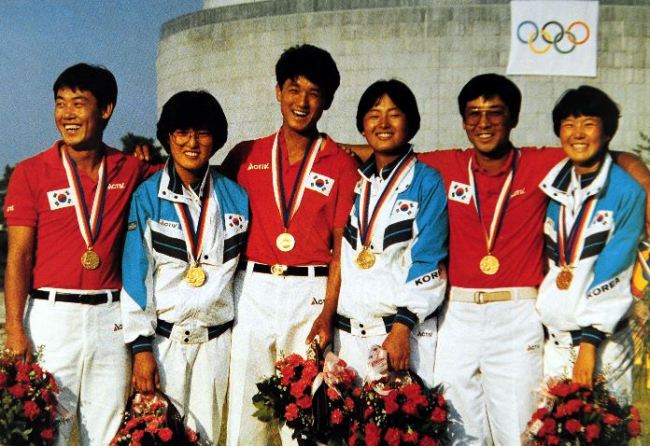
[The Hosting Cities] Seoul vs. PyeongChang
The two Olympics in South Korea, first in 1988 and now in 2018, differ the most in that they are Summer and Winter Olympics, but also in that the former one took place in the country‘s capital city and the latter one in the remote mountainous region of Gangwon Province.
PyeongChang is about 3 hours’ distance from Seoul by car. Aided by the newly opened Gyeonggang KTX bullet train, the travel time is cut by an hour.
Seoul‘s population in 1988 was just under 9.8 million, still much more than the population of PyeongChang this year which stands at around 43,000. Even when the population of Gangneung is included, the number still falls significantly behind Seoul’s. Gangneung is the Olympic coastal sub-host city where all the games on ice take place. Its population stands at a little over 213,000.
The gap in the number of people residing in the Winter Olympic cities result in a rather quieter atmosphere for this year’s event compared to the one 30 years ago, despite it being the biggest international winter sports competition.
In Seoul, 159 nations participated in the 1988 Summer Games, while this year sees 92 countries represented in PyeongChang. As for the 2014 Sochi Olympics, 88 countries came to the games. Seoul and Sochi have international airports that allow direct flights. PyeongChang has no airport, and the only way to reach the city is by road or rail.
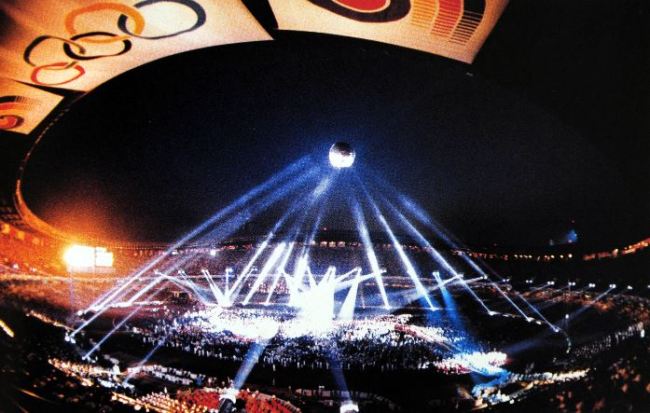
[The Mascot] Hodori vs. Soohorang
The tiger, an animal strongly tied to Korea and its culture, has represented South Korea at both of the Olympics it has hosted. The tiger appears frequently in Korean legends and art, and is an animal associated with humor, bravery and nobility.
At the 1988 Summer Olympics in Seoul, an orange Amur tiger named Hodori was the official mascot. The “Ho” of Hodori comes from the Korean word for tiger, while “Dori” is a common masculine diminutive in the Korean language.
Hodori wore a traditional Korean hat, the sangmo, with a ribbon shaped like “S” to represent Seoul. He also wore the Olympic rings around his neck.
At the 2018 Winter Olympics in PyeongChang, a tiger once again appears as the mascot. Soohorang is a white tiger, considered a sacred guardian animal in Korea. Its white fur also links the animal to many of the snow and ice sports in the Winter Games.
As for its name, “Sooho,” meaning protection in Korean, symbolizes the protection offered to the athletes, spectators and other participants of the game.
“Rang” comes from the middle name of “Ho-rang-i,” the Korean word for “tiger” and is also the last name of “Jeong-seon A-ri-rang,” a traditional folk song of Gangwon Province, where the Games will be held.
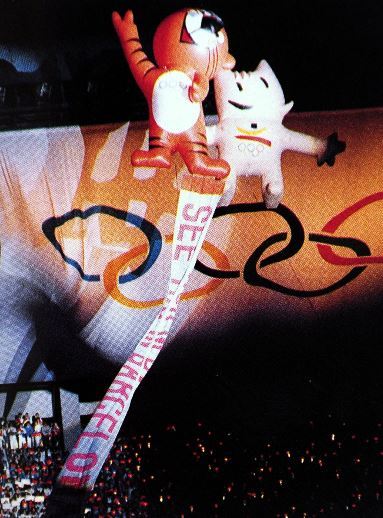
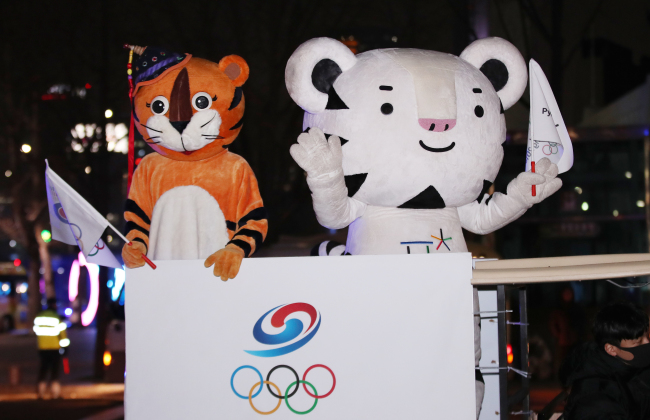
See related article: Meet the 2018 PyeongChang Olympics mascots: Soohorang and Bandabi
[The Two Koreas] Absence of North Korea vs. First-ever unified team
The 2018 PyeongChang Winter Games is a historic one in that it will feature the first-ever unified team of the two Koreas for women’s ice hockey in the Olympics.
There has been an attempt to send a unified team to the Olympics in the past, dating back to 1963 when the Koreas were preparing for the 1964 Summer Olympics in Tokyo.
But the most notable attempt was prior to the nation’s first Summer Olympic Games in Seoul in 1988. Leading up to the games, the two Koreas met four times over three years but failed to agree on the details.
North Korea ended up boycotting the event.
The South Korean government has been expressing hope that the North’s participation and the unified ice hockey team will be a catalyst to relieving the inter-Korea tensions, which have been building up due to Pyongyang’s ongoing nuclear and ballistic missile programs.
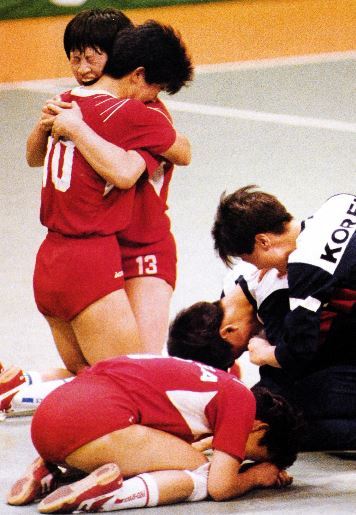
See related article: PyeongChang 2018 aiming for peace, sports and culture
[The Theme Song] Hand in Hand vs. No official Song
Those who remember the 1988 Summer Olympics would also remember “Hand in Hand,” which was the official song of the games in Seoul.
Produced by Italian composer Giovanni Giorgio Moroder, the song was sung by South Korea’s four-member band Koreana.
According to local media reports, the song topped music charts in at least 15 countries at the time, including Switzerland, Hong Kong, West Germany, Spain and Japan.
Its lyrics, which include the famous line “Hand in hand we stand, all across the land, we can make this world a better place to live” had two versions -- one in English and the other in Korean.
The song enjoyed great success back in 1988, having sold more than 12 million copies worldwide.
On the contrary, the organizing committee of this year’s PyeongChang Games had previously announced that there is no official song.
The Ministry of Culture, Sports and Tourism, however, recently became a subject of heated criticism over its official promotional video for the sporting event.
Many called it subpar content, and claimed the video’s use of an upbeat reinterpretation of the Korean folk song “Arirang” distasteful.
[The Economy] The newly industrialized & 11th-largest economy
In 1988, South Korea was one of the developing countries after rumblings of war on the Korean Peninsula when it hosted the Summer Olympics in Seoul.
The hosting of the international event came as a surprise for the world as the newly industrialized country pushed towards entering the developed world.
In the 30 years since then, the host nation of the 2018 PyeongChang Winter Olympics and 11th-largest economy in the world wants to show global leadership and promote peace, especially at a time of heightened tensions over North Korea’s nuclear and missile programs.
Home to the world’s largest phone maker Samsung, South Korea is now a much different place.
It ranks first on Bloomberg’s Innovation Index for the fifth consecutive year, while people enjoy cutting-edge mobile technology across the country.
Its economy is buoyed by active exports and investment activities from abroad, and the country’s soft power via Hallyu, or the “Korean Wave” is growing rapidly as a crucial hub for investors.
By Lim Jeong-yeo, Bak Se-hwan, Yoon Min-sik, Sohn Ji-young and Claire Lee (dyc@heraldcorp.com) (kaylalim@heraldcorp.com) (minsikyoon@heraldcorp.com) (jys@heraldcorp.com) (sh@hearldcorp.com)











![[Today’s K-pop] BTS pop-up event to come to Seoul](http://res.heraldm.com/phpwas/restmb_idxmake.php?idx=644&simg=/content/image/2024/04/17/20240417050734_0.jpg&u=)




![[KH Explains] Hyundai's full hybrid edge to pay off amid slow transition to pure EVs](http://res.heraldm.com/phpwas/restmb_idxmake.php?idx=652&simg=/content/image/2024/04/18/20240418050645_0.jpg&u=20240418181020)

![[Today’s K-pop] Zico drops snippet of collaboration with Jennie](http://res.heraldm.com/phpwas/restmb_idxmake.php?idx=642&simg=/content/image/2024/04/18/20240418050702_0.jpg&u=)